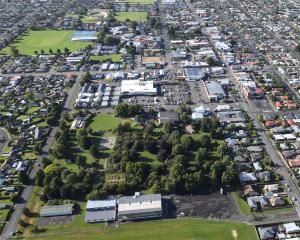The New Zealand Government is in an ''uncomfortable place'' over Australia's bid to join the United Nations Human Rights Council, Prof Andrew Geddis says.
And if the New Zealand Government chose not to support that move, it would be seen by Australia as a ''very major diplomatic snub''.
Prof Geddis teaches at the University of Otago Faculty of Law and his research interests include rights jurisprudence.
Last week, the Green Party asked Prime Minister John Key in Parliament to confirm or deny New Zealand's support for Australia's bid for a seat on the UN Human Rights Council.
Late last week Mr Key refused to confirm or deny New Zealand's support, saying that was the responsibility of the foreign minister.
Green Party co-leader James Shaw said it would be wrong for New Zealand to support Australia's bid for a seat on the world's top human rights body when Australia had ''time and time again'' been found to have breached international human rights requirements.
Prof Geddis was approached for comment, given claims of widespread human rights breaches involving New Zealanders detained indefinitely in remote centres in Australia.
Prof Geddis said New Zealand and Australia often supported bids by each other to join various UN bodies.
''Australia is our closest ally and our closest neighbour.
''We traditionally stand with them and they stand with us.''
On the other hand, the New Zealand Government potentially risked getting offside with its own citizens if it was perceived as supporting a harsh Australian human rights stance which was adversely affecting some New Zealanders.
He was asked about cases involving New Zealand children remaining in Australia and being separated from a parent who was being deported to this country.
He was also asked about New Zealanders being deported to this country after spending most of their life in Australia and having few memories of this country or support networks here.
He said such cases were concerning, but domestic laws in Australia that took a harsh view of border control issues were popular among the Australian electorate.
Prof Geddis said international human rights principles remained important, even if Australian courts had found, in at least one case, that Australian laws took precedence over international norms on human rights.
The detention and deportation of New Zealanders who had served a year or more in an Australian prison had ''probably caused a short-term downturn in the relationship'' between the two nations.
But it was unlikely the situation would cause long-term harm.
Australia was a much bigger country than New Zealand, and New Zealand ultimately needed Australia more than Australia needed New Zealand.
But one of a Government's most essential duties was to defend the interests of its citizens.
It could prove damaging if New Zealanders formed the view their Government was not doing enough to protect their interests, he said.












